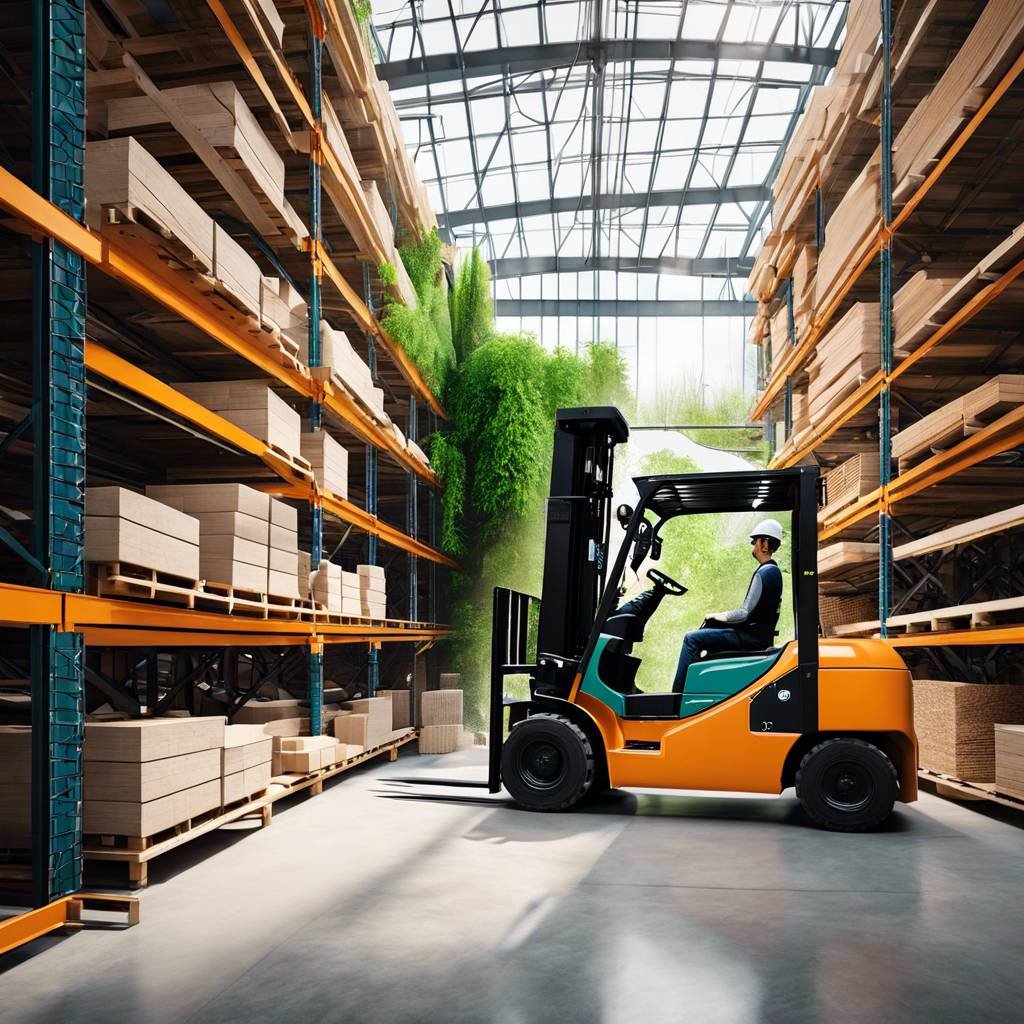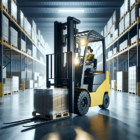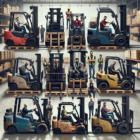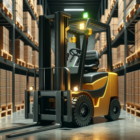When it comes to navigating the ever-shifting sands of Australia’s construction industry, those with a vested interest—be it as a project manager, an on-the-ground labourer, or a fleet coordinator—face a relentless array of challenges. Of increasing concern is the pressure from added expenses due to more stringent sustainability requirements and changes in material supply, which can severely impact the operational efficiency and financial viability of construction projects.
Amidst this landscape of evolving rules and shortages, businesses are on the lookout for pragmatic solutions. One such solution lies in the strategic management of construction equipment, specifically forklifts. With our focus on forklift hire in Sydney, forklift servicing, and repairs, we aim to deliver value to our customers within the construction industry, helping them mitigate some of the emerging challenges.
In light of new state policies in NSW aiming for net-zero emissions by 2050, and Victoria’s impending ban on new homes connecting to gas, the ripple effect on construction processes—and thereby equipment needs—is palpable. These sustainable and climate-resilient building requirements add nearly 10% to building costs. It’s clear that those in the building industry must seek out cost-efficiencies wherever possible; one area ripe for savings is in the operation and maintenance of forklifts.
For project managers, the choice between a diesel forklift vs electric forklift can be a formidable one, with each bringing its own set of advantages. Diesel forklifts offer raw power and high-performance capabilities, especially valuable in outdoor environments with uneven terrain or in situations demanding heavy lifting. However, with the focus on emissions reduction, electric forklifts are increasingly becoming the preferred choice. They are quieter, emit no fumes—a critical factor for indoor operations—and are generally more cost-effective over the long term due to lower fuel and maintenance costs.
Forklift rentals in Sydney offer flexibility and cost-effectiveness, especially within a fluctuating market. By hiring rather than purchasing, construction projects can scale their equipment needs up or down with relative ease, responding quickly to changing demands without incurring the substantial capital expense of owning a diverse fleet. This agility in managing resources can be the difference between keeping a project on track and facing costly delays.
Furthermore, diligent forklift servicing in Sydney can help mitigate the impact of new building regulations by ensuring equipment operates at peak efficiency. Regular maintenance checks contribute to the lifespan of the machinery, safeguard against operational downtime due to unexpected malfunctions, and are an essential aspect of operational efficiency. Forklift repairs also cannot be sidelined; they are a crucial stepping stone to ensuring that projects proceed uninhibited and that equipment employed is both safe and reliable.
In such times where skilled labour is in shortage and planning approvals can extend the timeframes to complete projects, the emphasis on maximising the productivity of available resources becomes paramount. Facilitating smooth operations through the effective use of forklifts—by prioritising their hire, servicing, and maintenance—can ensure that despite broader challenges, the bricks continue to be laid, both metaphorically and literally.
In conclusion, as the construction industry in Australia contends with a mix of regulatory requirements and practical hurdles, we stand ready to assist. By providing flexible options for forklift hire in Sydney, backed by comprehensive servicing and expedient repairs, we aim to be the silent partner in your project’s success—a partner committed to driving efficiency in the face of rising costs, helping you navigate the challenges without compromising on your operational necessities. So, whether you’re requiring the robust force of a Toyota Forklift or the environmentally-conscious option of an electric forklift, remember that your strategic decisions in equipment management can help fortify your business against the industry’s prevailing winds.





